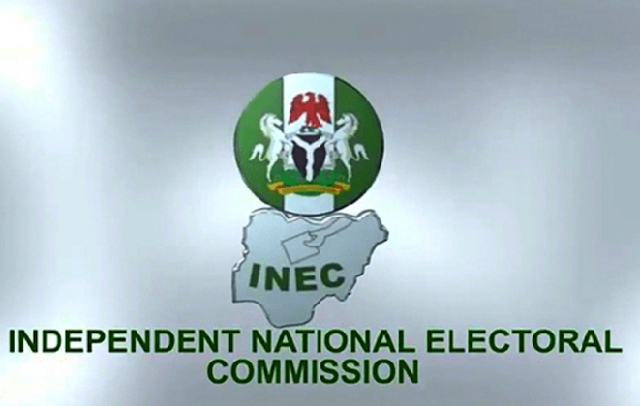In continuation of its preparations for the Edo and Ondo States governorship elections, the Independent National Electoral Commission (INEC) Wednesday met with media organisations, where it released fresh guidelines for voters safety during elections.
At the virtual teleconference meeting with media organisations and the President of Nigeria Union of Journalist (NUJ), Chris Isiguzo, the INEC chairman, Prof. Mahmoud Yakubu, also assured the media organisations that the commission would recognise journalists and issue them accreditation for the two governorship elections.
According to the INEC chairman, “The Commission has always accredited media organisations to cover elections and to ensure your unimpeded access to voting locations and collation centres. The forthcoming Edo and Ondo Governorship elections as well as many bye-elections across the country will not be different.
“However, in tandem with the new health reality, accreditation of media organisations for these elections will be done online through a dedicated portal. You will be fully briefed at this meeting on the new procedure”, the INEC chairman said.
The commission, therefore released the procedure for accreditation for media organisations covering the governorship elections include the following:
“Each media organisation will apply and upload the list of its personnel to be accredited and their passport photographs and personal details.
“INEC will screen the names and particulars to ensure that they comply with the requirements for accreditation.
“Each organisation will nominate a contact/liaison person to liaise with INEC and collect accreditation materials for its staff. The materials which include items such as Identification Tags, Branded Waist Coats and Information Kits will be collected at the NUJ offices in the two State. INEC officials will be on ground in the NUJ offices to distribute the materials.
“Accredited journalists must observe all the health protocols issued by the Commission, the health authorities and the various state governments.
“Accredited journalist must also respect the secrecy of the vote, the right of the voter to free choice.
.Also, the INEC national commissioner in charge of electoral operations, Prof. Okechukwu ibeanu. released fresh guidelines and code of conduct for voting during elections.
Specifically, Prof. ibeanu said that the commission would not tolerate branded face masks, as any one with such would be turned back. He also said that INEC will not provide face masks due to logistical reasons based on cost.
He said that for INEC to provide face masks for over 6.4 million at N100 each would cost the commission over N640 million.
The INEC commissioner said that results would not be transmitted electronically as there is no law yet for it.
Also, he said that the commission had suspended the continuous registration of voters at least for now due to covid -19.
Prof. Ibeanu said that the commission had suspended the continuous voters registration and would collapse some collation centres into one as well as collapsing the registration area centres.
He also said that there may be a reduction of voting points, but said that this may be due to reports in the course of the preparations for the elections.
Prof. Ibeanu, said. “Wearing of face mask at Polling Units and all election locations is mandatory. Please make provision for your own face mask. Face masks must be worn at all times, but an election official may request you to lower your mask for proper identification when necessary and anyone that is symptomatic to covid 19 would be isolated immediately.
“Voting starts by 8.30 am and stops at 2.30 pm.
“There shall be two queues formed at each polling location (Polling Unit or Voting Point). The first queue (the outer queue) will be outside, from which an election official shall bring voters into the voting area in batches. The second queue (the inner queue) will be formed in the voting area.
” By 2.30 pm, an election official shall stand at the end of the outer queue indicating that the queue is closed. Any voter on the outer queue by 2.30 pm shall be allowed to vote.
“Queues must be orderly and voters on a queue must maintain a distance of 2 meters (6 feet) from each other”.
According to INEC, “Any voter showing symptoms of COVID-19 such as high temperature, coughing, sneezing, etc. will be requested to leave the queue or voting area and shall be attended to by designated officials.
“Please obey all directives by the officials to keep yourself and others safe. Report any health emergencies urgently to an official at the Polling Unit.
Avoid unnecessary touching of surfaces or leaning on walls and other surfaces at the Polling Unit. You may request for hand sanitizer which will be given to you if available.”
The commission said that “an election official may ask to clean your fingers with an antiseptic before your fingerprint is read with the Smart Card Reader.
Please show your voters’ card to election officials whenever you are requested to do so.
After you cast your vote, move away from the voting area. If you wish to observe the counting of votes and announcement of result, you will be directed by an election official on where to stay”
.
It further said, requested voters to ensure that they go away with their used protective materials such as face masks and hand gloves, urging them not to litter it at the polling unit!
The commission asked voters to “Remember that cell phones or any other device that can take pictures are still not allowed in the voting cubicles.
Please obey all directives issued by election officials, including security officials, and be orderly at all times. INEC shall not tolerate assault of any election official and you may be prosecuted for doing so”.
In his contribution to the meeting, the NUJ President, Chris Isiguzo, called on INEC to ensure the safety of journalists during the elections, especially considering the covid-19 pandemic.
Source: THISDAY













